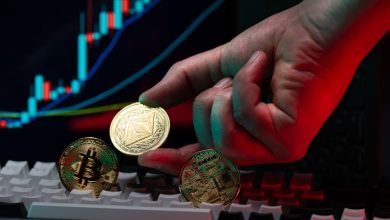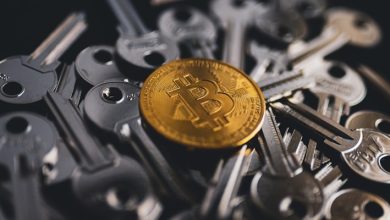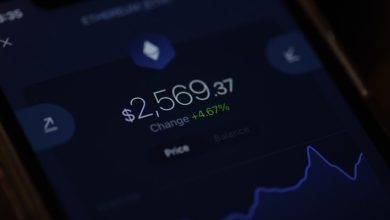Investing in DeFi Projects: Opportunities and Risks to Consider

- Understanding DeFi Projects and Their Potential
- The Risks of Investing in DeFi: What You Need to Know
- Exploring the Opportunities in DeFi Investments
- Key Factors to Consider Before Investing in DeFi Projects
- The Future of DeFi: Trends and Predictions
- Balancing Risk and Reward in DeFi Investments
Understanding DeFi Projects and Their Potential
Understanding decentralized finance (DeFi) projects and their potential is crucial for investors looking to capitalize on this rapidly growing sector. DeFi projects leverage blockchain technology to offer financial services without the need for traditional intermediaries like banks. These projects have the potential to revolutionize the way we think about finance and investing.
When considering investing in DeFi projects, it’s important to understand the opportunities and risks involved. On the one hand, DeFi projects offer the potential for high returns on investment, as they often provide innovative solutions to traditional financial services. However, these projects also come with significant risks, including smart contract vulnerabilities, regulatory uncertainties, and market volatility.
Investors should carefully research and analyze DeFi projects before committing any funds. This includes understanding the project’s whitepaper, team members, technology stack, and community support. By conducting thorough due diligence, investors can mitigate risks and make informed investment decisions in the DeFi space.
The Risks of Investing in DeFi: What You Need to Know
Investing in DeFi projects can offer lucrative opportunities for investors looking to capitalize on the growing trend of decentralized finance. However, it is important to be aware of the risks involved in this emerging market.
One of the main risks of investing in DeFi is smart contract vulnerabilities. Smart contracts are the backbone of many DeFi projects, and if they are not properly audited or secure, they can be prone to hacks and exploits. Investors should thoroughly research the smart contracts of projects they are considering investing in to ensure they are robust and secure.
Another risk to consider is the volatility of the cryptocurrency market. DeFi projects often use cryptocurrencies as their native tokens, and the prices of these tokens can be highly volatile. Investors should be prepared for the possibility of significant price fluctuations and be aware that they could lose a substantial amount of their investment if the market takes a downturn.
Additionally, regulatory uncertainty is a major risk factor in the DeFi space. As decentralized finance continues to gain traction, regulators around the world are starting to take notice and consider how to regulate these projects. This uncertainty can create legal risks for investors, as regulatory changes could impact the legality and viability of certain DeFi projects.
Overall, investing in DeFi projects can be a high-risk, high-reward endeavor. It is crucial for investors to conduct thorough due diligence, assess the risks involved, and diversify their investments to mitigate potential losses. By staying informed and being cautious, investors can navigate the risks of DeFi and potentially capitalize on the opportunities it presents.
Exploring the Opportunities in DeFi Investments
When it comes to exploring the opportunities in DeFi investments, there are a wide range of options available for investors to consider. DeFi, or decentralized finance, has been gaining popularity in recent years as an alternative to traditional financial systems. By investing in DeFi projects, investors have the opportunity to participate in a variety of innovative and potentially lucrative ventures.
One of the key advantages of investing in DeFi projects is the potential for high returns. Many DeFi projects offer investors the chance to earn significant profits through various mechanisms such as yield farming, liquidity provision, and staking. These opportunities can provide investors with a way to grow their wealth rapidly and take advantage of the fast-paced nature of the DeFi market.
Another benefit of investing in DeFi projects is the ability to diversify one’s investment portfolio. By allocating funds to a variety of different DeFi projects, investors can spread out their risk and potentially increase their overall returns. This diversification can help protect investors from market volatility and unexpected events that may impact individual projects.
Furthermore, investing in DeFi projects allows investors to participate in the growth and development of innovative technologies. Many DeFi projects are at the forefront of blockchain innovation, creating new solutions for financial services and other industries. By investing in these projects, investors can support the advancement of cutting-edge technology while also potentially benefiting from the success of these projects in the long run.
Key Factors to Consider Before Investing in DeFi Projects
When considering investing in DeFi projects, there are several key factors that you should take into account to make an informed decision.
One important factor to consider is the overall security of the project. Since DeFi projects operate in a decentralized manner, they are often vulnerable to security breaches and smart contract bugs. It is crucial to thoroughly assess the security measures implemented by the project to mitigate potential risks.
Another factor to consider is the project’s team and their experience in the field of DeFi. A strong and experienced team can significantly increase the chances of the project’s success and longevity. Research the team members’ backgrounds and track records to ensure they have the necessary expertise to execute the project successfully.
Furthermore, it is essential to evaluate the project’s whitepaper and roadmap. These documents provide valuable insights into the project’s goals, objectives, and long-term vision. Analyzing the whitepaper can help you understand the project’s utility, tokenomics, and potential for growth.
Additionally, consider the project’s community and ecosystem. A strong and active community can contribute to the project’s success by fostering adoption and driving innovation. Engage with the project’s community through social media channels and forums to gauge the level of interest and support.
Lastly, assess the project’s market potential and competition. Evaluate the uniqueness of the project’s value proposition and its ability to differentiate itself from competitors. Conduct thorough market research to understand the demand for the project’s products or services and its potential for growth in the DeFi space.
By considering these key factors before investing in DeFi projects, you can make more informed decisions and mitigate potential risks. Remember to conduct due diligence and research thoroughly before committing your funds to any project.
The Future of DeFi: Trends and Predictions
Looking ahead, the future of decentralized finance (DeFi) appears promising, with several trends and predictions shaping the landscape. One key trend is the continued growth of the DeFi ecosystem, as more projects are being developed and launched to offer innovative financial products and services.
Another trend to watch is the increasing integration of DeFi with traditional finance, as institutions and mainstream investors show more interest in the space. This could potentially lead to greater liquidity and adoption of DeFi protocols.
Moreover, advancements in technology such as layer 2 solutions and interoperability between different blockchains are expected to drive further innovation in the DeFi space. This could result in improved scalability, lower transaction costs, and enhanced user experience.
As for predictions, many experts believe that regulatory clarity will play a crucial role in shaping the future of DeFi. Clearer guidelines and regulations could help legitimize the industry and attract more institutional capital.
Additionally, the rise of decentralized autonomous organizations (DAOs) is expected to continue, with more projects embracing this organizational structure to govern and manage their operations. This could lead to a more decentralized and community-driven approach to decision-making within DeFi projects.
In conclusion, the future of DeFi is filled with exciting possibilities and potential for growth. By staying informed about the latest trends and developments in the space, investors can position themselves to take advantage of the opportunities that DeFi projects have to offer while being mindful of the risks involved.
Balancing Risk and Reward in DeFi Investments
Investing in DeFi projects can offer lucrative opportunities, but it also comes with inherent risks that investors must carefully balance. When considering DeFi investments, it is crucial to weigh the potential rewards against the possible downsides to make informed decisions.
One key aspect to consider when evaluating DeFi projects is the level of risk involved. DeFi platforms are decentralized and operate without intermediaries, which can expose investors to a higher degree of risk compared to traditional investments. It is essential to assess the security measures in place, such as audits and smart contract protocols, to mitigate the risk of potential vulnerabilities.
Another factor to consider is the volatility of the cryptocurrency market. DeFi projects are often built on blockchain technology and rely on digital assets, which are known for their price fluctuations. Investors should be prepared for the possibility of sudden market shifts and factor this into their risk management strategy.
Additionally, investors should diversify their DeFi portfolio to spread risk across different projects. By investing in a variety of DeFi platforms, investors can minimize the impact of any single project underperforming or facing issues. Diversification is a crucial risk management technique that can help protect investments in the volatile DeFi space.
In conclusion, while DeFi investments offer exciting opportunities for potential high returns, investors must carefully balance the risks involved. By conducting thorough research, assessing security measures, considering market volatility, and diversifying their portfolio, investors can make informed decisions to maximize their chances of success in the DeFi space.



